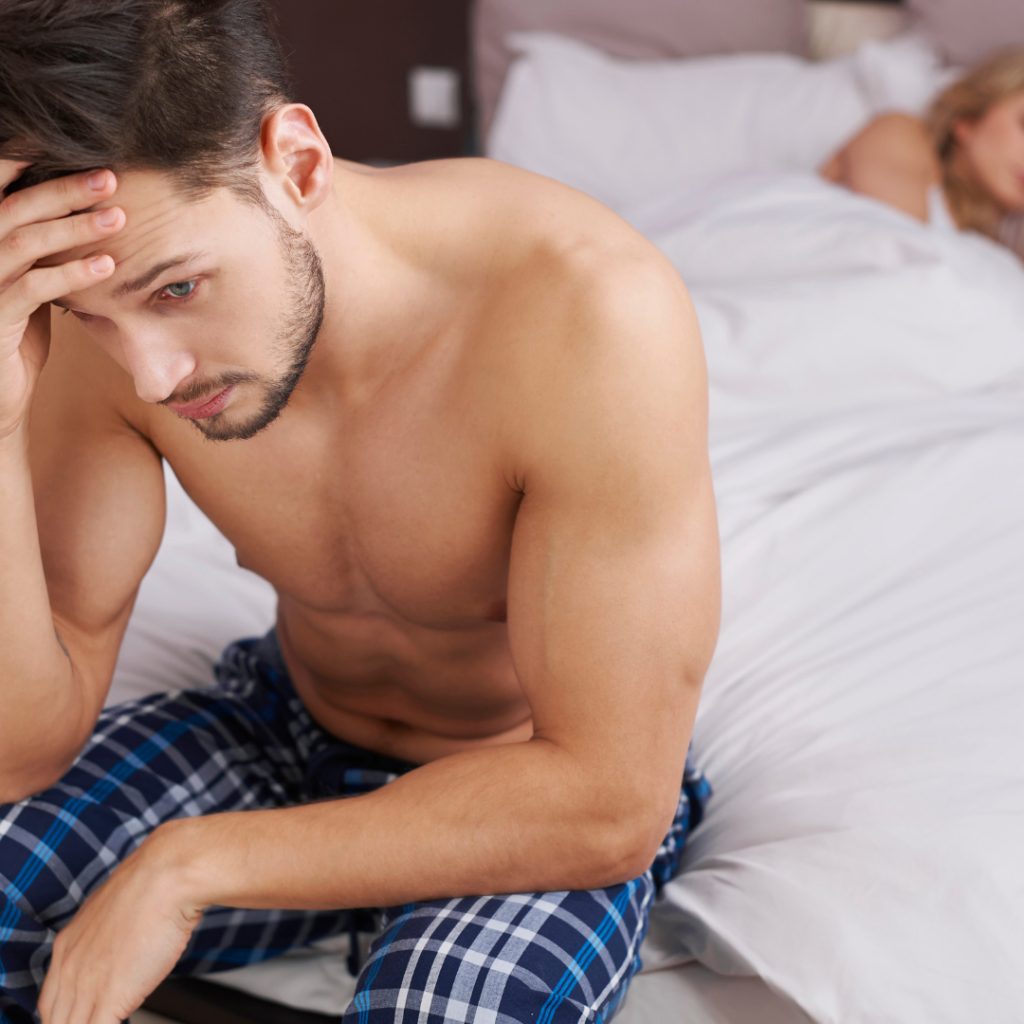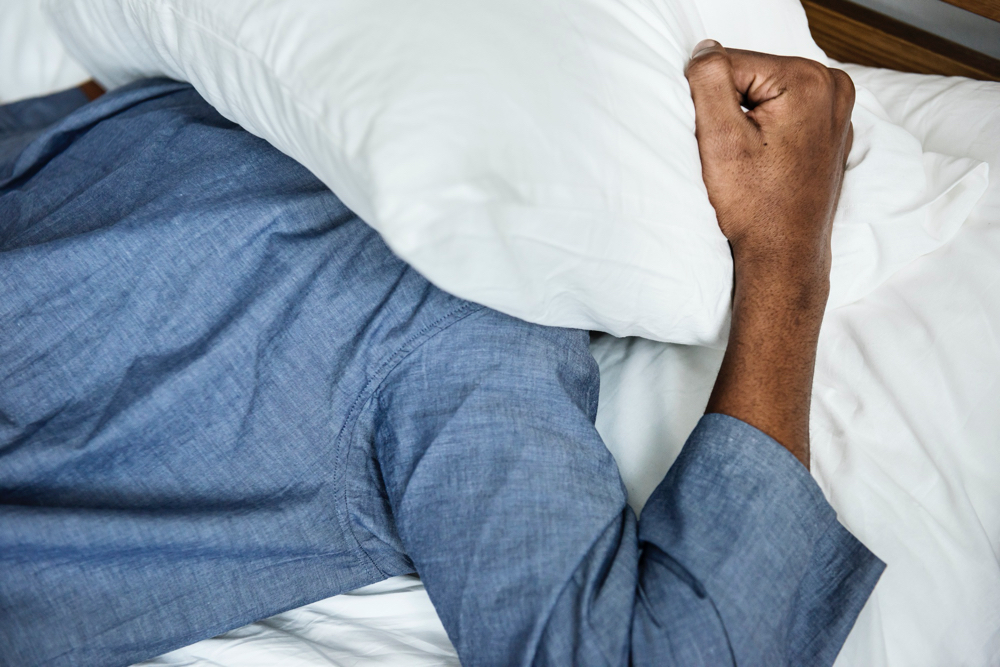
Sleep problems can be tricky, especially if it involves anxiety and a hyperactive mind. On top of that, poor sleep quality can induce stress which in turn worsens sleep. It’s like a cycle that won’t break on its own.
Nevertheless, all is not lost when you’re losing sleep. You can rely on science-backed tips to improve your nightly routine. Once these actions become habits, you can gradually enhance sleep quality and quantity.
In this article, we will cover practical tips for better sleep if you have anxiety through a breathing technique, creating a sleep schedule, writing down your worries, setting a limit to your screen time, and more.
- Do the 4-7-8 Breathing
Mindful breathing exercises have been proven to promote relaxation and reduce stress.
In a study published in the World Journal of Clinical Cases, there was a significant improvement in the treatment group who have had mindful breathing and sleep-inducing exercise compared to the control group who only received routine therapies.
One of these mindful breathing techniques is the 4-7-8 breathing regulation, dubbed the body’s natural tranquilizer. This technique is common among those who practice yoga based on pranayama breathing exercises.
How to Do 4-7-8 Breathing
The 4-7-8 in this technique represents the number of seconds or counts you’re supposed to perform the key tasks. You can practice this breathing exercise in 6 simple steps.
- Sit properly, keeping your back straight
- Push your tongue behind your upper front teeth
- Inhale through your nose with your lips closed in the count of four.
- Hold your breath for seven seconds.
- Exhale through your mouth for eight counts. With your tongue pressing on the back of your teeth, you’re bound to make a whoosh sound.
- Repeat the cycle three times.
If your mind races non-stop during the night, interfering with your sleep, do the 4-7-8 breathing technique to regulate your thoughts. This lowers your stress responses which makes you feel less anxious. As you master the technique, you’ll find your sleep quality improved in no time.
- Create a Sleep Schedule
Your body has an innate body clock that determines sleep. This is regulated by releasing the hormone melatonin produced by the pineal gland in the brain.
Simply put, sleep itself can be conditioned through a proper pattern. To make this happen, you will need to reset your circadian rhythm to its default settings.
That being said, it only makes sense to adhere to a particular sleep schedule and stick to it. As you train your body with this schedule, you increase the likelihood of achieving sleep even when anxiety strikes.
A 2020 study supported the notion that structured sleep leads to better alignment between sleep and circadian rhythm, especially for those who experienced trouble sleeping.
- Write Down Your Worries
Since the relationship between sleep and anxiety is a two-way street, you can solve the other if you address one. Therefore, if you’re aiming for better sleep, you can do so if you deal with your anxiety healthily.
Psychologists recommend different approaches to anxiety that go outside medications and clinical treatment. One of which is expressive writing.
According to a study conducted by the University of California, individuals who write their thoughts and feelings about a stressful or traumatic event showed a significant decrease in anxiety.
Hence, you can consider writing down your fear, worries, and any thoughts of events that trigger your anxiety. Doing this at night can have a cathartic effect, leading to better sleep.
- Turn Off Notifications at Night
When smartphones became the must-have all-in-one tool for professional, social, and personal businesses, it became harder to part from it. However, connecting with your phone even at night can be detrimental to your mental health.
For one, whenever the notification stimulates your auditory and tactile perception, it interrupts a specific brain function that’s currently at work. One instance of this cognitive reaction can be noted in a 2016 study wherein individuals interrupted by push notifications have a higher error rate with the task at hand. This can be associated with the disruption in the thinking pattern of people who switch from one task to another.
Another study on smartphone addiction also suggested that notifications trigger the body’s fight-or-flight response. Part of this process is the increase of cortisol which triggers stress.
With that in mind, it would be helpful to turn off your phone notifications at night. This way, you won’t get anxious with every ping or vibration your phone makes. Instead, you can simply focus on relaxing and easing your mind.
It also makes it easier to distance yourself from work or other matters you can address during the day.
- Set a Time Limit on Your Screen Time
Melatonin, the sleep hormone, gets released depending on triggers perceived by your brain.
The most notable and obvious trigger is exposure to light. During the day, melatonin secretion is suppressed leaving you more energetic. But at night, when light is less or nonexistent, melatonin is produced in higher amounts which trigger sleepiness.
This can also be associated with the artificial light emitted by your smartphone. According to research, phones and other gadgets produce short-wavelength visible light that affects circadian rhythm and sleep physiology.
Moreover, extended use of smartphones at night keeps your brain more active and engaged. This results in difficulties in sleeping which could lead to losing quality sleep.
- Play Calming Music
The key to good sleep if you’re anxious is relaxation. If you can maintain the ability to relax more during bedtime, you can fall asleep faster and achieve complete rest.
Calming music is regarded as a low-cost non-pharmacological tool for better sleep among many experts. While there are a myriad of auditory influences inducing sleep, relaxing music is still considered the most effective.
In fact, in a study conducted by the University of Fribourg, Switzerland, music has been found to promote better sleep quality than hypnotic suggestions.
On top of that, relaxing music also influences stress response particularly the endocrine and autonomic components. This means that it can lower anxiety especially at night.
- Include Aromatherapy in Your Evening Routine
By now, you may have already perceived that taming your senses can promote relaxation. This is because you can recognize external stress through your senses.
Hence, instead of a notification alert, you go for calming music. In the same way, you condition your room temperature for a colder environment and dim the lights to promote melatonin production.
In terms of olfactory perception, you can also become more relaxed with soothing scents. This is the foundation of aromatherapy.
A 2014 study pointed out the stress-reducing potential of aromatherapy by showing how cortisol levels or the stress hormone goes down when subjected to essential oil scent, especially lavender.
When Should I See a Doctor?

If sleep has become a chronic problem, it’s time to check with your doctor. While you may experience losing sleep from time to time, when it persists despite the recommended non-pharmacological approaches, it could be a sign of an underlying health condition.
For example, thyroid problems like hypothyroidism affect your overall sleep quality. Your doctor may check your thyroid activity through thyroid blood tests for proper diagnosis. By treating such conditions, you could take control of your sleep again in no time.
Bottom Line
It’s unfortunate that anxiety often occurs at night – just as when you can already have the rest you need.
While you can rely on sleep medications, they can be pricey at times. If you’re looking for practical solutions that won’t cost you a dime, try the aforementioned tricks for better sleep.
On the other hand, if the condition persists, consult your doctor as sleep deprivation can simply be a symptom of another health problem.
